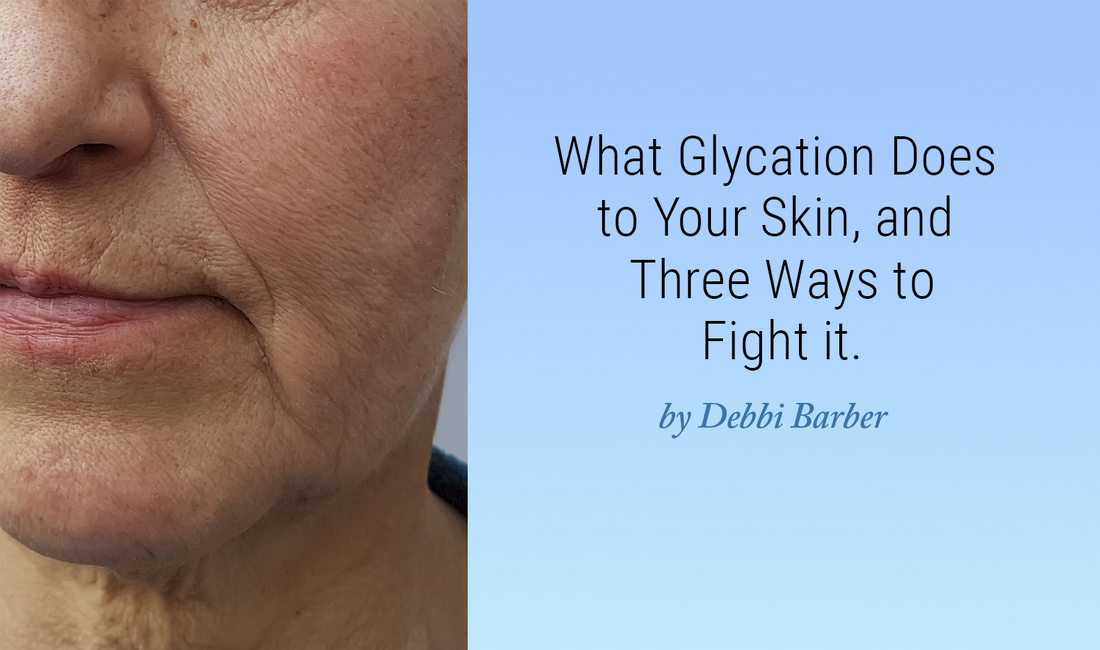
What Glycation Does to Your Skin Three Ways to Fight it
This reaction can occur in any tissue in the body and it happens over time. However, the rate of glycation can be accelerated by factors such as high sugar consumption, smoking, increased blood-glucose levels caused by stress, and oxidative stress caused by UV exposure, air pollution, or poor lifestyle habits.
Oxidative radicals are the most important participants in glycation reactions. Antioxidants protect the protein structure from damage and inhibit the highly reactive precursor compounds of AGEs (carbonyl compounds) that result from sugar chain cracking or lipid peroxidation.
When glycation reactions continue for an extended period, it can undergo further chemical reactions, and the protein molecules cross-link and form Advanced Glycation End Products (AGEs). AGEs lead to several health problems, including diabetes complications, heart, and Alzheimer's disease. In recent years, many scientific studies have revealed that advanced glycation end products are among the crucial contributory factors of skin aging.
When sugar molecules bind to collagen and elastin proteins in the skin, such essential proteins cannot correctly support the skin's structure, leading to wrinkles and other signs of accelerated aging. The external signs of glycation start to appear between the ages of 30 to 35.


AGEs are irreversible and difficult to metabolize. As AGEs accumulate year-by-year, the skin undergoes profound changes from the inside to the outside. AGEs affect all levels of the skin, causing inflammation, ageing, yellowing and other issues.
The good news is that there are steps you can take to reduce the effects of glycation and keep your skin looking its best.
1. Eat an anti-AGEs diet. According to Mary Sabat, Registered Dietician and Nutritionist that means to cut down on sugars and refined carbohydrates, as they can elevate blood sugar levels, increasing the risk of glycation. Opt for complex carbohydrates like whole grains and veggies instead. Embrace a rainbow of antioxidant-rich foods, including berries, leafy greens, and colorful vegetables, as they combat oxidative stress.
2. Use anti-glycation products, such as Vitali Skincare with GHK-Cu. This potent regenerative peptide can help your skin in a number of ways by:
- Stimulating the production of collagen and elastin
- Inhibiting the activity of enzymes that break down collagen and elastin
- Neutralizing free radicals and reducing oxidative stress, which can lead to glycation

Another effective anti-glycation ingredient in Vitali products is brown algae. Brown Algae’s antioxidant effect protects against the skin’s firming collagen degradation. It supports cellular energy production, increasing the skin’s oxygen supply. This process positively affects cell renewal and the skin’s overall appearance. An in vitro study on brown algae extract found that the application to cells can protect collagen cells by interacting with collagen inhibitors to preserve collagen. Research shows that phlorotannins from brown algae inhibited the formation of advanced glycation end products by scavenging reactive carbonyls.
3.Consider supplementing with L-carnosine.
Research has shown Carnosine can prevent AGE formations through the reduction of blood glucose, prevention of early glycation, and even reversing previously formed AGEs. Carnosine is a potent free-radical scavenger and anti-glycating agent that inhibits AGE formation and its cross-linked proteins, helping to keep them functioning correctly. While you get Carnosine in your diet through animal protein, supplementing with L-Carnosine can boost you.
Dr. Suzanne Ferree, M.D. recommends that her patients supplement with 1,000 milligrams of L-Carnosine daily.
By following these tips, you can help reduce the effects of glycation and keep your skin looking young and healthy for years to come.
